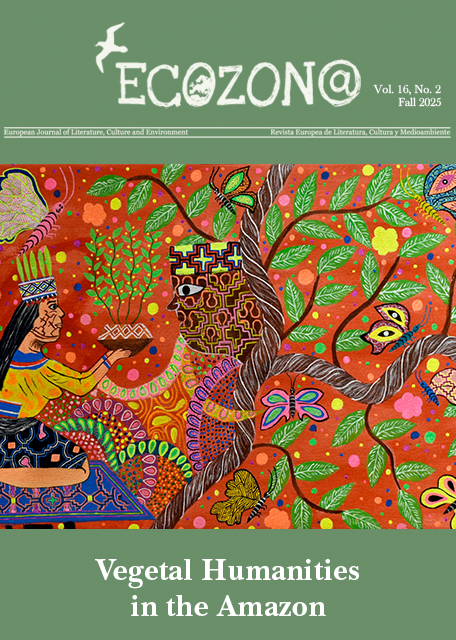Hatred of the Earth, Climate Change, and the Dreams of Post-Planetary Culture
DOI:
https://doi.org/10.37536/ECOZONA.2020.11.1.3188Schlagworte:
Post-Planetarism, Climate Change, Eco-Criticisim, David Brin, Gregory Benford, Kim Stanley Robinson, Science FictionAbstract
This text examines the effects of climate change on cultural ideas regarding the colonization of space. More specifically, this paper explores the ways which the looming danger of climate catastrophe has fueled the growth of post-planetary culture: a culture that dreams of a human destiny beyond the Earth. It takes as its object both science fiction texts and non-fiction futurological pronouncements by scientists and entrepreneurs. What emerges from this study is the observation that unlike climate skeptics, post-planetarists believe that climate change is real. Yet like climate skeptics, they subordinate climate action to other priorities, putting the construction of a means of escaping this planet above climate action. But why do these post-planetarists wish to fly? Via a close reading of David Brin’s Earth, we argue that one of the key characteristics of post-planetary culture is a feeling of hatred and alienation towards the Earth. This hatred is both re-enforced by the ravages of climate change even as it contributes to this destruction by blocking post-planetarists from whole-heartedly engaging in climate action. In order to illustrate an antidote to this pathological cultural reaction to our current crisis, I present a close reading Kim Stanley Robinson’s Aurora, exploring how this text is both a critique of post-planetarism and a guide to renewing our love for the Earth.
Downloads
Downloads
Veröffentlicht
Ausgabe
Rubrik
Lizenz
Authors who publish with this journal agree to the following terms:
a) Authors retain copyright and grant the journal right of first publication with the work simultaneously licensed under a Creative Commons Attribution License that allows others to share the work with an acknowledgement of the work's authorship and initial publication in this journal (CC BY-NC for articles and CC BY-NC-ND for creative work, unless author requests otherwise.
b) Authors are able to enter into separate, additional contractual arrangements for the non-exclusive distribution of the journal's published version of the work (e.g., post it to an institutional repository or publish it in a book), with an acknowledgement of its initial publication in this journal.
c) Authors are permitted and encouraged to post their work online (e.g., in institutional repositories or on their website) prior to and during the submission process, as it can lead to productive exchanges, as well as earlier and greater citation of published work (See The Effect of Open Access).










